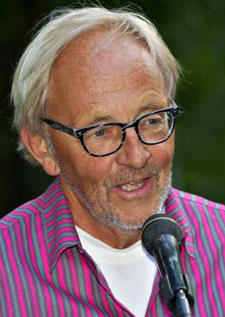Archive for November, 2012
The demand for a new political order in China
By Jonathan Power
The rubber stamp congress of China’s communist party is over. There have not been any surprises. The script was pre-written, the actors were in place and the show went on.
I suspect most Chinese don’t care a damn about the details- how the leaders are selected, how economic policy is fine tuned, the approval of the budget and so on. What the masses see is the momentum of the wave of economic progress which seems to lift most boats, albeit at the price of a widening in income distribution and the very poor being left behind. But if you are a villager do you care much if middle class town dwellers have a new car if you can buy a motorbike, a fridge, better furniture and a TV.
However, a growing middle class, many of them highly educated, do care. They don’t like being told what to do by edict. Most of them keep their public mouths shut although they open up in private. But as time passes and their numbers swell this passivity will not last. The system will be increasingly questioned. The big secret worry for the leadership must be that the communist party will just collapse one day as it did in Russia and Eastern Europe, an event which hardly any western politician, academic or journalist predicted. Read the rest of this entry »
Gunnar Westberg’s CV
Nils Gunnar Westberg
Born June 29 1938 in Sundsvall Sweden
After having served as TFF Associate since 2002, Gunnar Westberg joined the Board of the foundation in October 2008.
Obama’s victory and Romney’s defeat
By Richard Falk
Around the world even more than in the United States there is an audible sigh of relief the day after Obama won a clear mandate for a second term as president. Deconstructed it mainly meant that many more were relieved that Romney lost, rather than excited that Obama won. Yet there were some, with whom I partly agree, whose gaze carries beyond the narrow victory in popular vote (as distinct from the decisive victory in the electoral college vote), to appreciate a positive fundamental change in American demographics.
The white majority coalition that Reagan fashioned so skillfully in the 1980s, achieving incredibly regressive societal results, seems to be losing out to the rising proportion of the electorate that is African-American and Latino, reinforced by the political outlook of youth and the liberal outlook of many women when it comes to reproductive rights. Perhaps, as indicative of a changing social climate were the successful referenda on state ballots in Maine, Maryland, and Washington to legalize same sex marriage and separate initiatives calling for legalizing the medical use of marijuana. Only a decade ago putting such measures on the ballot in several battleground states was understood as a brilliant tactical move by Karl Rove to mobilize the Republican base that was passionately dedicated to defeating such liberalizing initiatives, widely regarded by conservatives as signs of societal degeneracy.
What makes the Obama victory surprising is that his four years in the White House had definitely demobilized his base that had been so ardent in 2008, and seemed only lukewarm in 2012. Read the rest of this entry »
Is South Africa digging its own grave?
By Jonathan Power
Is South Africa going to tumble from the sky like some out-of-control
aeroplane? It is beginning to look like it. Ex-president, Nelson
Mandela, who sacrificed a good part of his life in jail to liberate
it, must be wondering, and doubtless is full of grief. What is worse
for South Africa is that it happens concurrently with the rest of
black Africa’s economic take-off. Present forecasts suggest that
Nigeria in a few years’ time will overtake South Africa to be
sub-Sahara’s largest economy.
Archbishop Desmond Tutu, a great non-violent freedom fighter, summed
it up well: “The gravy train stopped at the station just long enough
for the whites to get off and the black elite to clamber on.” Read the rest of this entry »
Lebanon’s red lines, bared
By Sharmine Narwani
What a difference a week can make in the Middle East.
On October 19, when a car bomb tore through the upscale Christian neighborhood of Achrafiyeh in Beirut killing a major security official, Lebanon shuddered in fear that the era of political assassinations was back.
Politicians and commentators didn’t miss a beat. The murder of Internal Security Forces (ISF) Information Branch head Wissam al-Hassan was compared to the killing of his former boss, ex-prime minister Rafiq Hariri in 2005. And the Hariri-allied pro-West, anti-Syria, pro-Saudi “March 14” political coalition lined up to deliver a visceral blow to their opponents, just as they had in 2005 when they ejected Syrian troops from Lebanon.
Hassan’s body was not yet cold before his political allies started pointing their fingers at Syria and whipping up fury in the anti-Syrian Sunni enclaves of Lebanon. Read the rest of this entry »
Further reflections on Istanbul as global capital
By Richard Falk
My proposal that we consider the possibility of treating Istanbul as the world capital attracted a broad range of responses. I tried to make clear in my revised text that Istanbul could not hope to have this kind of recognition until Turkey had addressed some serious issues, especially the Kurdish grievances that have induced a massive hunger strike in Turkish jails (with over 600 prisoners now taking part, and more threatening to do so), as well as serious concerns about the human rights implications of the imprisonment of many students and journalists.
Several other kinds of objections were also raised. Read the rest of this entry »
New TFF Newsletter
By Jan Oberg
Before TFF’s mission to Iran, we published this Newsletter with what we do, where we think the world is heading and an article by Board member Annette Schiffmann on her photo exhibition about women’s empowerment.
It also contained a rather strong appeal for your support to us – one of the few remaining independent research institutions and in its 26th year devoted to the UN norm of peace by peaceful means. Please hit the support link that suits you on the top right here to support our work, missions, analyses and websites and social media presence.
There is no such thing as a free peace!
Peace studies by peaceful means
By Johan Galtung
Peace studies matter; same as health studies. We are born with the inclination to reject suffering, be it from violence or disease, and to seek wellbeing, call it peace, call it health. But we are not born with the knowledge and skills, theory and practice.
We have found causes and conditions for health in the body-mind-spirit context, as in the World Health Organization’s focus on health as physical, mental and social wellbeing. We rejected illness as divine punishment for the sick person’s Evil and explored pathogens–factors carrying diseases–such as traumas (also from violence, wars), contagious diseases, stress diseases (cardio-vascular, malignant tumors, mental disorders), chronic diseases that we can learn to live with, etc. To be adamantly against disease and in favor of health was seen as necessary – adding human will to the healthy as a sanogen, a factor carrying health. But health studies were needed. Knowledge and skills were needed. Theories were as indispensable for good health practice as vice versa. Read the rest of this entry »
A change in Washington ? (1)
By Johan Galtung
From Washington, DC on Election Night
One of them won, of course, even if the real winners as usual were the non-voters, for whatever reason: men more than women. About 23:15 Obama passed the magic 50 percent mark, not of popular votes but of electoral colleges, with 302-206, well above 270; it turned into a landslide. Net result: status quo, no change.
The media did their best to make the presidential election look important, being the pinnacle, the altar on which democracy is built. Some democracy. Bad enough with a Supreme Court washing the process in six billion dollars as one more freedom of expression like talking words; any kind of words, libelous, often neither true nor relevant. Stupid TV spots. But many issues were somehow articulated, there were real disagreements, there was some kind of rhetorical left-right. Read the rest of this entry »
Israel’s nuclear weapons
By Jonathan Power
The story of Israel’s nuclear bomb is rarely told. But we hear a lot about the possible Iranian bomb and the dangerous bombs of Pakistan that perhaps militant Islamists could grab – although that is unlikely given that the US has supplied state-of the-art locks to Pakistan. And then there are India’s, Britain’s, France’s, America’s, China’s and Russia’s. There used to be a South African bomb ( Israel worked with Israeli bomb scientists), and attempts by Sweden, Libya, Brazil and Argentina to build a bomb. These latter day five all voluntarily gave up their nuclear weapons plans and the ex-Soviet republics of Ukraine and Kazakhstan gave up their arsenals.
As for the would-be Iranian bomb it is forgotten that the Shah, with US knowledge, was the one who initiated the research that he hoped could lead to a bomb. (There is no proof that Iran today is building one.) Read the rest of this entry »





